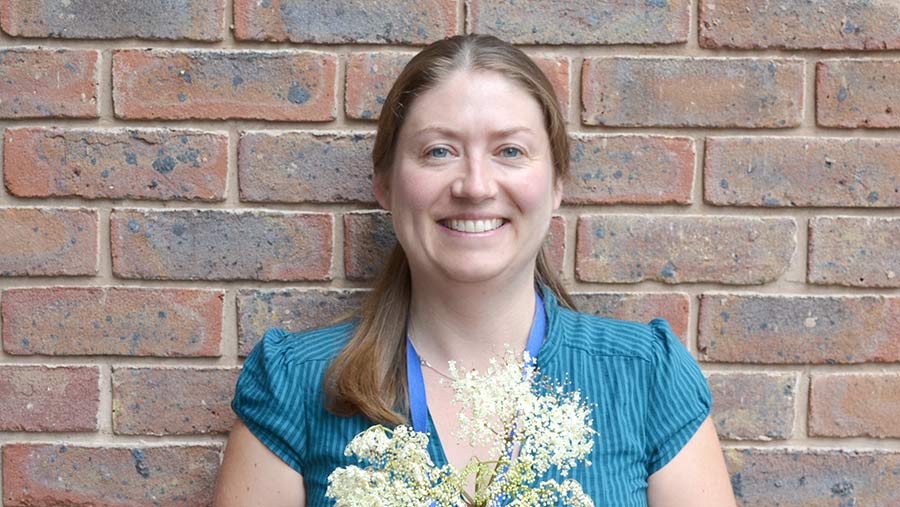Job profile: What’s it like to be a food scientist?
The journey of food from farm to fork can be a complex one – even seemingly simple products need to be processed and packaged before they can appear on a supermarket shelf.
Food scientists oversee the production of food and drinks, making sure they are safe and tasty to consume.
It’s an incredibly varied role that requires knowledge of chemistry, microbiology and sensory science.
Alice Jones explains her job as a food scientist and gives an insight into careers in the agri-food industry
See also: Read more job profiles about jobs in the agri-sector

Alice Jones
How would you sum up your current role?
I’m part of the University of Nottingham’s Food Innovation Centre, carrying out short-term research projects with small and medium-sized food and drink enterprises (SMEs), tailored to investigating specific technical questions they have. It’s nice and varied.
What sort of responsibilities do food scientists typically have?
Food scientists can work in research and development, food safety, microbiology, quality or sensory and consumer science departments in food manufacturing companies, universities or private research organisations.
They can cover the whole of the food supply chain, from raw material production on the farm, all the way through to product formulation, process development, the science of packaging and the measurement of consumers’ responses to products.
Alice’s top tips for getting into food science
- Take all opportunities you can to do work placements and industrial years while you are studying to help put what you are learning into context.
- Don’t be afraid to try out lots of different roles in lots of different corners of the food industry in the early stages of your career. This will help you find out which jobs and organisations best suit you and your values.
What made you want to become a food scientist?
I did a module in A-level chemistry about the chemistry of food and was fascinated by the way science can be used to understand how to make a product taste great or have a specific characteristic or functional property.
You’ve worked with a number of SMEs producing food and drinks with a strong local provenance. What’s the buzz of working with such businesses?
I grew up cooking and home-growing my own food, so I have always valued good-quality, excellent-tasting, local food.
We should all know and care about the places and people behind the food we eat. SMEs that produce products with provenance usually care deeply about all those factors; they share the same values as me.
What’s been the highlight of your career so far?
My eureka career moment has been discovering that I really like working in roles that involve a partnership between a university and a food manufacturing business.
I have access to all the latest research and knowledge in food science at the university, which I apply and translate into a format that is useful to address a specific problem or question from industry. I directly see (and usually taste) the result in the form of a new or improved product or process.
Do you get to try lots of delicious products?
Since I specialise in the sensory and flavour science side of food science, it would be remiss to not try the products I am working with! Working with SMEs often means you deal with artisan or premium product sectors too. One of the common things you will hear me saying on the job is: “Yes, but does it taste good?”
What’s the most challenging aspect of working in food science?
Each time you work with a new food or drink category, you have a lot of learning to do to build up sector-specific knowledge.
There is often an expectation that you can readily switch between multiple subjects in one day.
You might need to answer a question on food safety (microbiology knowledge) one minute and then explain how to maximise flavour impact the next (chemistry and sensory knowledge).
What sort of experience and qualifications are needed to do the job?
A degree in food science, accompanied by as much practical experience as possible. I spent the two summer holidays during my degree course on work placements in the product development kitchen of a large food manufacturer and in a government food-analysis laboratory.
Are the opportunities in this field increasing?
There is certainly no lack of positions available for food scientists – especially in food manufacturing, the demand for people qualified in this field outstrips supply. Everybody needs to eat, so the agri-food industry is quite a safe bet in terms of being able to find employment.
What are the salaries like?
The average food scientist salary is not going to get you rich quick and you have to work hard for the money you do make. However, you are unlikely to ever have moments of unemployment. A typical starting salary for a new graduate would be £20,000/year.
